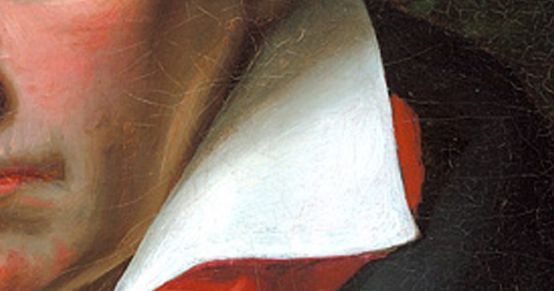Wellington's Victory or the Battle of Vittoria
Every Friday, Beethoven is here. To mark the 250th anniversary of Beethoven's birth, each week the Swiss Music Review takes a look at a different work from its catalog. Today, for "Wellington's Victory or the Battle of Vittoria".

Many of Beethoven's biographers have been embarrassed by the score of this Opus 91, Wellingtons Sieg - Alfred Einstein even claims that this is the "lowest point of his work". The success and popularity of this musical painting of a battle (divided into two "sections": battle and victory symphony) have made it seem suspect, not least because of its programmatic aspect. The historical conditions in which the work was composed have been lost sight of. On July 27, 1812, Napoleon's troops had been causing military and civil unrest throughout Europe for over a decade, when news of the victory at Vitoria finally reached Vienna: Lord Wellington had already routed Napoleon's troops near the Basque city on June 21, putting an end to French domination of the Iberian peninsula. After this success, courage returned to the coalition forces, who won the Battle of Leipzig in October of that year: the beginning of the end for Napoleon.
When this piece and Beethoven's Seventh Symphony were first performed at the University of Vienna on December 8 and 12, 1813, not all the battles had yet been fought, but the most decisive ones had. This is how we can understand the scale and success of this concert, organized for the benefit of Austrian and Bavarian soldiers disabled during the Battle of Hanau. The hundred-strong orchestra featured the city's finest musicians, with Schuppanzigh as first violin. Beethoven conducts, and the applause is described as "indescribable": "Monsieur Beethoven's fame is thus restored; he is received with enthusiasm at every performance", says the Wiener allgemeine musikalische Zeitung.
What followed, however, was less than glorious. Beethoven had originally written the Victory Symphony (the second part of the work) for Johann Nepomuk Mälzel's Panharmonica, a sensational musical automaton for its time. However, Mälzel had performed the work with a Munich orchestra without consulting the author beforehand, and a performance in London was also under negotiation. Beethoven then took legal action regarding the work's authorship, and summarized the conditions of its creation: first, he had written the Victory Symphony for Mälzel's panharmonic "on his own initiative [...] and voluntarily". Mälzel then approached him with a request for a transcription "for orchestra", which he also produced. But Beethoven had already had the idea of a large-scale battle piece for the first part, and this was musically "not applicable" to the panharmonica. Beethoven explains that Mälzel mistakenly thought he was the "exclusive owner of this work" because he had - as compensation, so to speak - made "hearing aids" for Beethoven, but these were, Beethoven again says, "not good enough for me".
The proceedings were unsuccessful, and Beethoven and Mälzel apparently reconciled afterwards. In a review of a piano score by Gottfried von Weber, the piece in question is described as an "important work - a very demanding piece". This shows the extent to which this Wellington's victory was still a topic of discussion in 1826. Beethoven, however, annotated this passage with a rather indecisive remark: "not at all, it's only a piece to be played occasionally, and then again".
Aufnahme auf idagio
Keeping in touch
A weekly newsletter reveals the latest column on line. You can subscribe by entering your e-mail address below, or by subscribing to our RSS feed.








